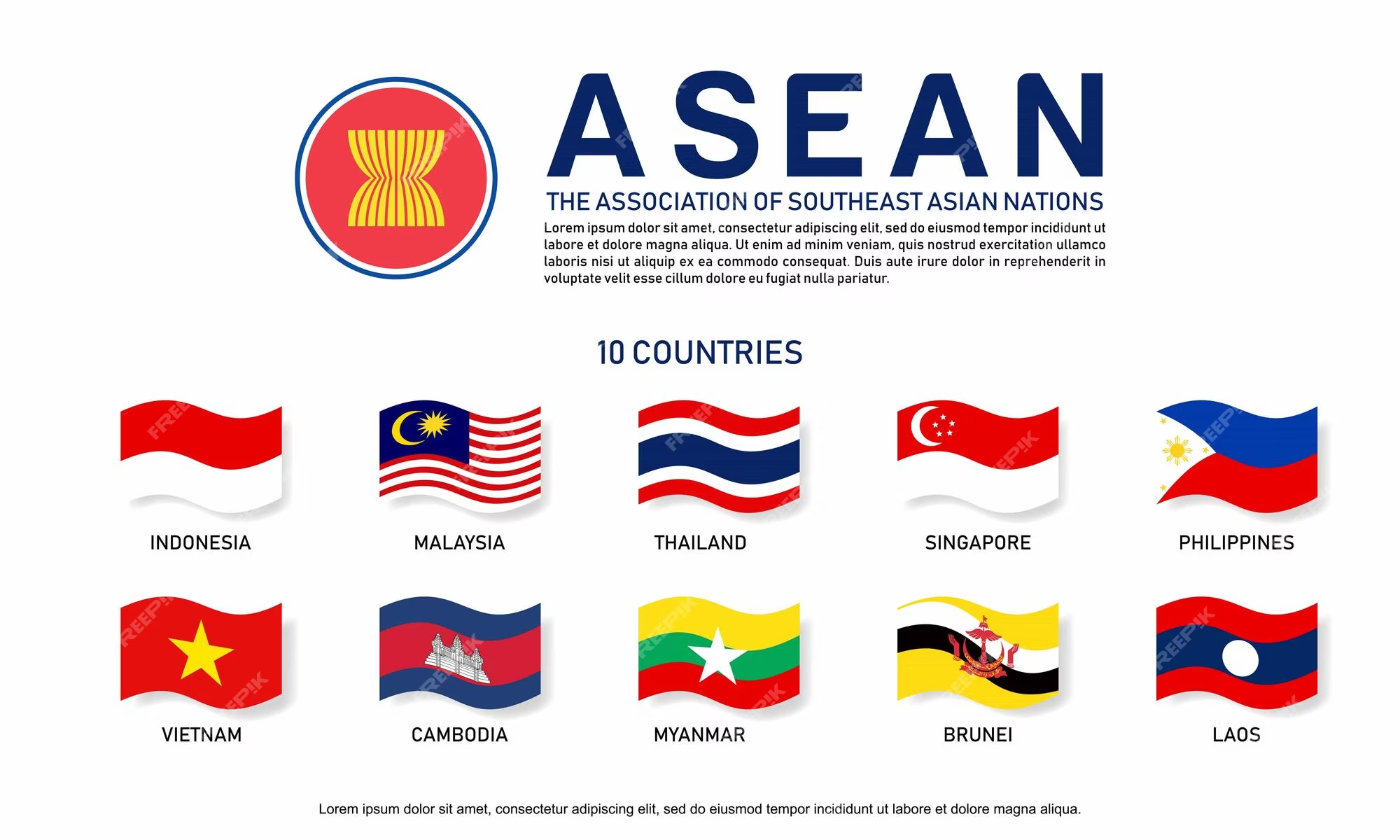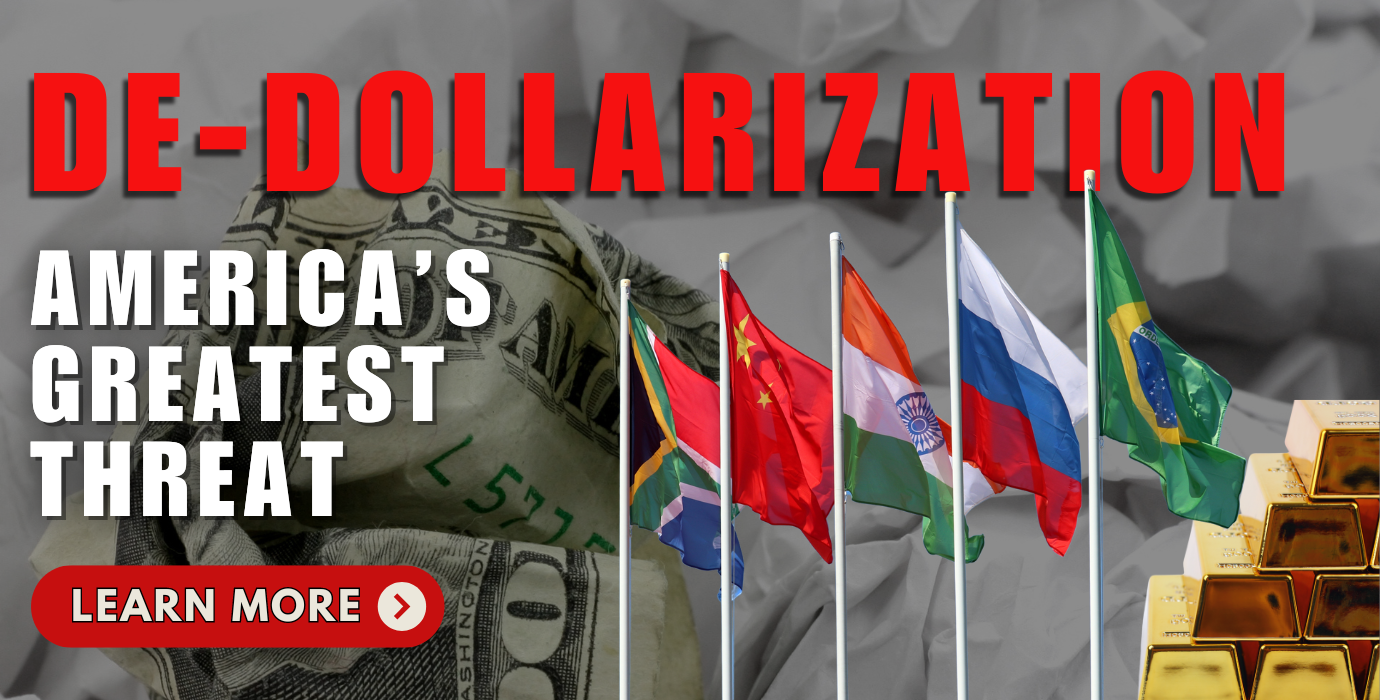The BRICS bloc is quickly moving to establish a new world order under the leadership of Russia as the current BRICS chair has called on member states to create an alternative to the International Monetary Fund (IMF) to counter political pressure from Western nations.
According to a report from Reuters, Anton Siluanov, the finance minister of Russia, met with top BRICS finance and central bank officials this week in Moscow, where he highlighted that the global financial system is controlled by Western countries and said it’s time for the bloc – which accounts for 37% of the global economy – to create a new alternative.
“The IMF and the World Bank are not performing their roles. They are not working in the interests of BRICS countries,” Siluanov said. “It is necessary to form new conditions or even new institutions, similar to the Bretton Woods institutions, but within the framework of our community, within the framework of BRICS.”
The push to establish new institutions comes as Russia's forex reserves in dollars and euros have been frozen under Western sanctions. These sanctions have seriously hampered Russia’s financial system and cut the country off from international capital markets.
Russian President Vladimir Putin has also joined the call to build a new international framework with BRICS allies. As reported by TAAS, Putin told Turkmen President Serdar Berdimuhamedov that Moscow is open to dialogue on building a new world order and invited Berdimuhamedov to the upcoming summit in Kazan.
Putin made the comments while speaking at the “Interconnection of Times and Civilizations – Basis of Peace and Development” international forum, which was dedicated to the 300th anniversary of the birth of Turkmen poet and thinker Makhtumkuli Fraghi.
“Russia is in favor of the widest possible international discussion on the parameters of interaction in the emerging multipolar world and is open to discussing the issues of building a new world order with all our friends, partners, and like-minded people, including within the CIS, the EAEU, the Shanghai Cooperation Organization, and BRICS,” Putin said. “It is in this spirit that we are preparing the BRICS and Outreach/BRICS Plus summit to be held in Kazan on October 22-24.”

As part of his outreach, Putin thanked “the current leadership of Turkmenistan, its president, as well as the national leader of the Turkmen people, Gurbanguly Berdimuhamedov, for following the precepts of Makhtumkuli Fraghi, making a significant contribution to maintaining peace and stability in the region, as well as expanding multifaceted cooperation and partnership.”
In other developments that are likely to ruffle the feathers of Western leaders, Iran, which has seen escalating tensions with Israel – and its ally, the U.S. – hopes to sign a comprehensive strategic partnership treaty with Moscow at the BRICS summit in Kazan.
“I hope we will conclude this agreement during the BRICS summit in Russia,” Iranian President Masoud Pezeshkian said at a meeting with Putin in Ashgabat. “If we compare with other [countries], our positions are much more similar.”
The meeting occurred on the sidelines of the Interconnection of Times and Civilizations forum and was the first meeting between the presidents of Russia and Iran after Pezeshkian’s election to the post.
All of the requirements for the signing of the comprehensive strategic partnership treaty have already been completed, and it is expected to serve as a major milestone in the evolving relationship between the two countries. Putin approved the draft treaty on September 18, and Iranian Ambassador to Moscow Kazem Jalali said that the document was ready for signing on October 4.
Pezeshkian underscored that Tehran attaches great importance to relations with Russia, calling the country Iran's “friend and neighbor.” During a phone conversation on July 8, three days after his election as Iran's president, Pezeshki told Putin that he was ready to sign a strategic partnership treaty with Russia at the BRICS summit in October.
Pezeshkian also highlighted the importance of cooperation between the two states in BRICS, the Shanghai Cooperation Organization (SCO) and the Eurasian Economic Union (EAEU).
Working towards that goal is likely to be a focus of the upcoming BRICS summit. According to Russian Foreign Minister Sergey Lavrov, some of the countries in the Association of Southeast Asian Nations (ASEAN) have already accepted the invitation to attend the summit.

“A whole number of ASEAN countries have been invited to attend the [BRICS] summit and these invitations have been accepted,” Lavrov said. “I have no doubts that the approaches being developed within BRICS to various issues of the agenda can quite be of interest for participants in East Asia summits, especially for member states of the Association of Southeast Asian Nations.”
And Russia’s plans for BRICS expansion extend beyond the ASEAN region. According to Russian presidential aide Yury Ushakov, invitations to take part in the BRICS summit in Kazan have been sent to 38 countries, with 32 of them accepted so far.
“Invitations to the summit have been sent to 38 nations. These are member states and those countries that want to cooperate with our organization,” Ushakov said. “Thirty-two of them have already confirmed their participation,” including 24 countries that have confirmed their participation in the summit at the highest level.
“To date, eight countries are expected to be represented by senior officials,” he added. “There are a total of thirty-two countries, but there is still time, and we hope that the range of participants will be expanded to include other states.”
Ushakov noted that in its role as host of the summit, Russia has invited the leaders of its closest neighbors, specifically the Commonwealth of Independent States (CIS) countries, to participate in the meeting.
“All of them have confirmed their participation,” he stated. “We have also invited the current chairs of influential regional integration organizations in Africa, Latin America, the Middle East, and Southeast Asia. In addition to state leaders and senior officials, the summit will, as usual, be attended by the secretaries-general of the UN, the Shanghai Cooperation Organization, the Commonwealth of Independent States, the Eurasian Economic Union, the Union State, and the president of the New BRICS Development Bank.”
He added that “the high level of participation and wide geographical representation at the Kazan summit reflects the significance and role of BRICS on the global stage and highlights the growing interest from countries that pursue independent and self-sufficient foreign policies in joining the association.”
In a play on words, Ushakov called BRICS a pillar of a multipolar world that is being built “brick by brick.”
“We believe that BRICS is a prototype of multipolarity, a structure that unites the Global South and East on the principles of sovereignty and mutual respect,” he said. “We believe that this is quite logical and natural because what BRICS is doing is building a bridge to a more democratic and fairer world order gradually, brick by brick”
“No one can deny that both in its original 'five' format and the newly expanded BRICS, this is a structure that simply cannot be ignored,” he added, highlighting that the ten official members now account for more than 30% of the earth's landmass, have 45% of the world's population, account for more than 40% of total oil production and about a quarter of the world's exports.
“According to forecasts, by 2028, the GDP of the BRICS member countries in purchasing power parity terms will make up about 37% of the world GDP, while the G7's share will fall to 27% and perhaps even lower,” Ushakov emphasized. “As far as our country is concerned, participation in BRICS is, of course, one of our top foreign policy priorities. The influence of this association on the global agenda is constantly growing.”
Ushakov also noted Putin's role in driving the expansion, telling reporters that the Russian President will hold roughly two dozen bilateral talks on the sidelines of the coming BRICS summit in Kazan, with the first meetings starting as early as October 21
“We have more than enough in the pipeline already,” he said regarding the lineup of meetings, which he called a major component of international communication. “We can say in advance that our president is expected to hold around 20 bilateral meetings. All these bilateral meetings will run through the evening of October 24.”
Ushakov also highlighted that efforts to expand payments in national currencies between BRICS members continue, and they are working on a special infrastructure to facilitate this process.
“The Russian Finance Ministry, in cooperation with the Central Bank, is discussing with partners in the association the project of the BRICS-wide financial platform, special clearing infrastructure, and the BRICS reinsurer,” he said. The launch of these projects “will make it possible to broaden the practice of payments in national currencies and reduce costs in mutual trade.”
He underscored that work on this front had been a primary objective during Russia’s time as president of BRICS, saying they “paid much attention to making the financial track more active within the BRICS framework” this year. Russia’s term as chair will finish at the end of 2024.
While the BRICS nations are still working out the finer details of managing trade and currencies between the partners, that hasn’t slowed their de-dollarization efforts.
According to Siluanov, BRICS countries now use national currencies in nearly two-thirds of payments, while the use of the dollar and euro is now less than 30%.
“Indeed, we are in practice using national currencies and the Russian ruble within BRICS - 65% of all the settlements is made in rubles, in national currencies,” he said. “The share of the dollar and the euro is declining, and it is less than 30% now.”
Story by Jordan Finneseth - bullet points added by HGG https://www.kitco.com/news/article/2024-10-11/brics-build-new-world-order-russia-calls-alternative-imf-and-world-bank





